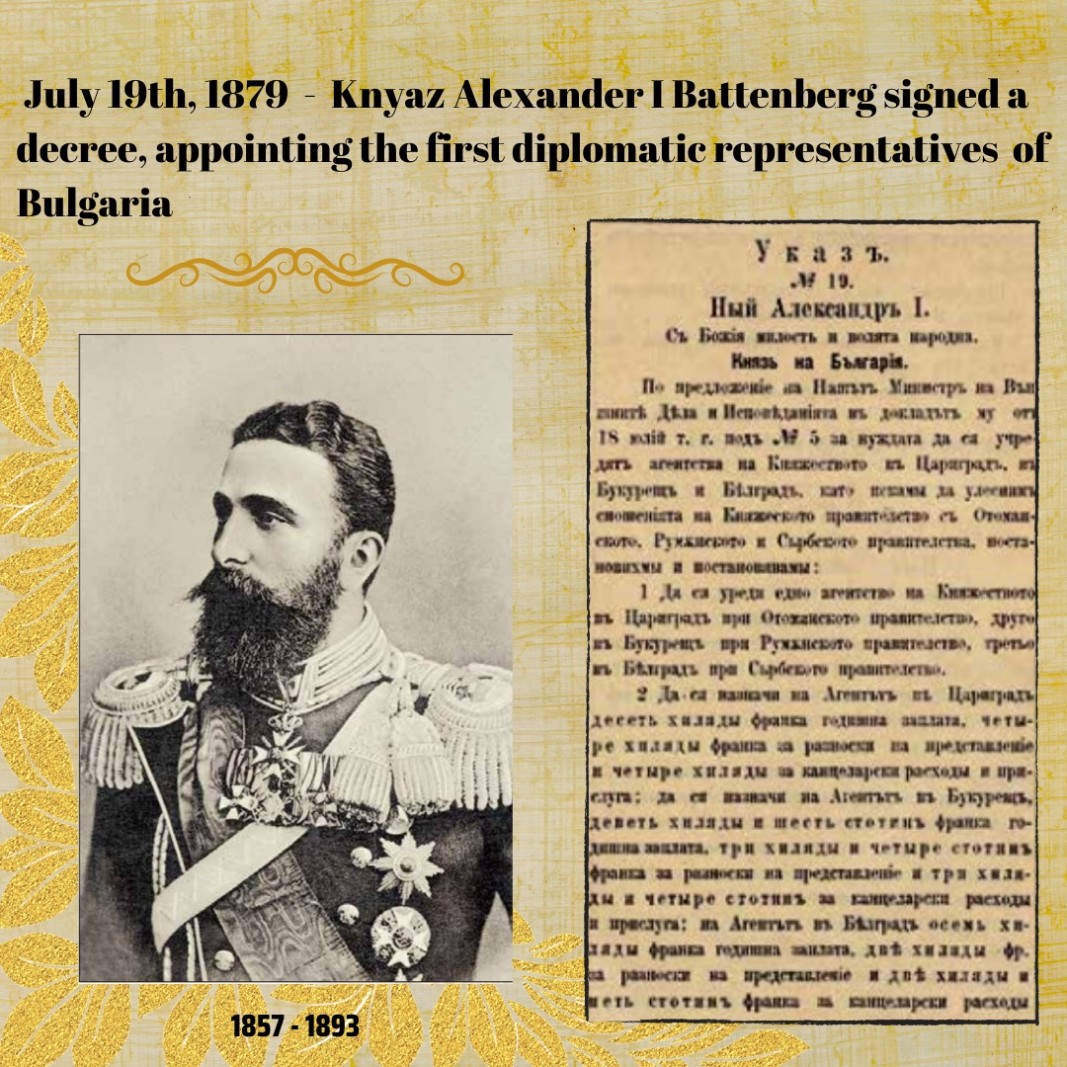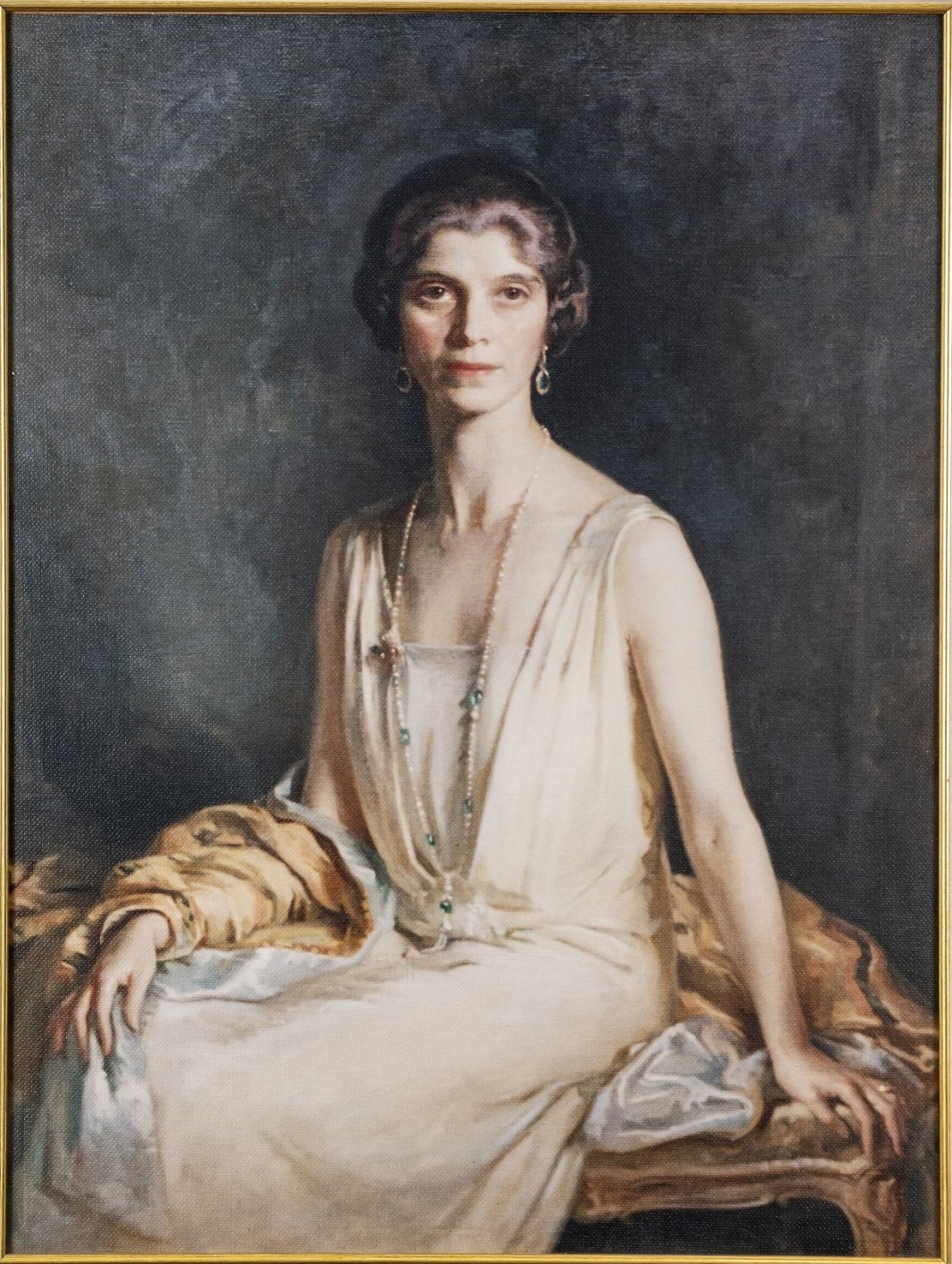Diplomacy is defined as the art and practice of negotiation and conducting dialogues through different measures between states, groups, or people to influence the international system's decisions, events, and behaviors. The word comes from ancient Greece, when envoys of the rulers handed notes and orders on double-leaved wax tablets which they called “diploma”. Today, more than ever, it is clear that diplomacy is so much more than theoretical knowledge. It is “knowledge, skill and foresight”, as the first head of the Diplomatic Institute in this country, Assoc. Prof. Zdravko Popov said some time ago in an interview with Radio Bulgaria.
19 July, 2023 marks 144 years since the establishment of the diplomatic mission in free Bulgaria. It is the day on which we honour all people committed to the “peaceful settlement of conflicts and upholding of the national positions in international relations”, as the President of Bulgaria’s National Assembly Rosen Zhelyazkov described the role of Bulgaria’s diplomats. The date was endorsed by force of a resolution by Foreign Minister Nadezhda Mihaylova on 21 July, 1999.
After the liberation of Bulgaria from Ottoman rule in 1878, and the signing of the peace treaty of San Stefano, Prince Alexander Dondukov-Korsakov set up a so-called office for general affairs and diplomatic relations, as part of the temporary Russian administration in the country. It was later reformed to become a foreign affairs department. Officially, by decree No. 23 from 17 July, 1879, in conformity with the first Bulgarian constitution – the Tarnovo Constitution – a central state institution was established for organizing, administering and pursuing the foreign policy of Bulgaria by way of diplomatic representation, i.e. a Ministry of Foreign Affairs and Denominations, and Marko Balabanov was appointed minister. By a decree issued by Prince Alexander Battenberg on 19 July, 1879, the first Bulgarian diplomatic representatives abroad were selected. The first countries Bulgaria entered into diplomatic relations with that same year were: Russia, Austria-Hungary, France, Germany, Great Britain, Italy, Belgium Serbia, Romania, Turkey.
An important place in Bulgarian diplomacy is occupied by the work of the Permanent Representation of the Republic of Bulgaria to the UN in Geneva the oldest Bulgarian diplomatic representation in the sphere of multilateral inter-state relations. At a time when gender equality was not on the world’s agenda, Bulgaria went down in history with the first female diplomat in the Balkans and in Europe, polyglot and journalist Nadezhda Stanchova (1894-1957), who took part in the peace conferences in Paris and in Genoa and was chargé d'affaires ad interim at the Bulgarian legation in London, and then first secretary at the Bulgarian legation in the US. Nadezhda Stanchova has indubitably made a major contribution to the role of women in diplomacy. 
Besides possession of certain personal qualities, the importance of good professional training and of passing practical skills onto the people working at the Bulgarian missions abroad has, through the years, proven to be essential. At the end of the 19th and the beginning of the 20th century, Bulgaria’s diplomats were mostly trained in France and Austria. “That was, without doubt, connected with the priorities of the country’s foreign policy as a whole,” explains Assoc. Prof. Zdravko Popov.
“It was only after the democratic changes in the country that an independent Bulgarian foreign policy system for training diplomats was considered,” says Assoc. Prof. Zdravko Popov. And in 2003, by a decision of the Council of Ministers, the Foreign Ministry’s Diplomatic Institute was set up – the first “school for diplomats” which is marking its 20th anniversary.
Today, “the foreign policy pursued by Bulgaria is the result of a nationwide coordinated effort, an effort of which the principle “Unity makes strength” holds true in the highest degree,” Bulgaria's Deputy Prime Minister and Foreign Minister Mariya Gabriel said, on the occasion of the day of Bulgarian diplomacy.
More:
Text: Vessela Krasteva
Translated and posted by Milena Daynova
Photos: Ministry of Foreign Affairs, National Assembly
The Federation of European Carnival Cities has declared Pernik a global center of masquerade traditions. 16 years ago, Prenik was named the European Capital of Sourvakar and Mummer Traditions, and nearly 10 years ago, the Surva festival was..
Bulgaria ranks last among EU Member States in terms of life satisfaction. This is according to Eurostat data for 2023 published today . With an average level of the Community indicator of 7.3 points out of 10, Bulgaria scores 5.9. Finland tops the..
As winter numbs the wilderness, the tortoises hibernate in their shelters, protected from the cold and outside threats. But what happens to them during this time? Where do they feel safest and when can we expect them to wake up? In the village of..
On February 16, Radio Bulgaria celebrates its 89th anniversary . Throughout these years, our multilingual media has been not only a channel of information,..
At various times in its existence, the BNR's Directorate of Foreign Language Broadcasts, now known as Radio Bulgaria, the multimedia multilingual platform..
February 16, 2025 marks the 127th anniversary of the first bulletin of the Bulgarian Telegraph Agency, signed by its first director Oscar Iskander. The..

+359 2 9336 661
